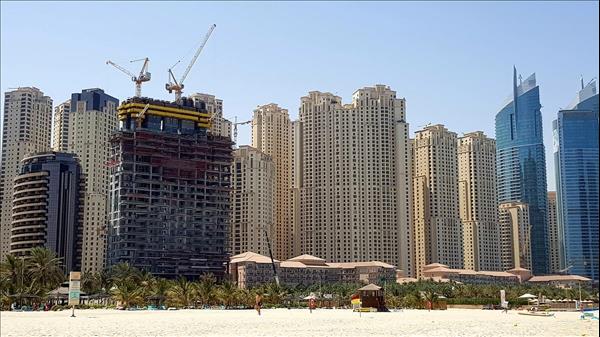(MENAFN- Khaleej Times) Published: Thu 11 May 2023, 4:40 PM Last updated: Thu 11 May 2023, 5:30 PM
When scouting a flat or a villa in Dubai, should residents prioritise the cost or the location? Choosing where to live is a big decision, and those who are new to the city -plus those who will be renting on their own for the first time - may have some doubts.
From procedures to document requirements and most popular places, this guide seeks to answer some of the frequently asked questions when renting in the city.
1. What are the best neighbourhoods to rent a property in Dubai?
With so many neighbourhoods to choose from, the best options will depend entirely on your lifestyle and budget.
If you want to be close to the beach or waterfront then Dubai Marina, Jumeirah Beach Residence (JBR), and Palm Jumeirah are great options. They offer stunning views, beachfront living and lots of amenities. If you prefer an urban hub, then Downtown Dubai and Business Bay are excellent choices with towering skyscrapers and easy access to transportation, shopping, and dining. They are also great for professionals who want to be close to their workplaces. But, these areas are all very popular so rents are much higher than in other parts of the city.
If you have children, then proximity to good schools could be a big factor, alongside access to amenities like parks and a swimming pool. Dubai has lots of great family-oriented townhouse and villa communities, such as Arabian Ranches, Dubai Hills Estate and Emirates Living.
One consideration should be whether you will be driving or using public transport. Driving will give you more flexibility with where you can live and you should look at neighbourhoods that have plenty of parking and easy access to a major highway. If you are using public transport, then look at neighbourhoods that are close to a metro station for easy, low-cost travel around the city.
Whilst some areas of Dubai can be out of budget, there are many more affordable communities. Jumeirah Village Circle (JVC) and Jumeirah Village Triangle (JVT) offer a selection of affordable apartments, townhouses and villas. Dubai Sports City is another great option for a budget-friendly apartment if you drive, or you could consider Al Furjan or Discovery Gardens if you want to use the metro. If you don't mind being out of the city, Damac Hills 2 is an excellent option for affordable townhouses and villas.
Nia Gaskin, Seniors Leasing Consultant at Betterhomes. – Supplied photo Don't commit to a rental property too quickly. Make sure you first spend time researching different areas, go and experience them by checking out the local amenities and test what the transport links are like. You should also speak with a reputable real estate agent and let them know exactly what you are looking for so that they can help you find the perfect neighbourhood.
2. What documents do I need to rent a property?
To rent a property in Dubai, you will need a copy of your passport, residence visa and Emirates ID. Without these documents, you would be unable to register your tenancy contract with Ejari. This is necessary to give you legal protection and to activate your Dewa (electricity and water). You will also need a UAE bank account with a chequebook to pay your rent, deposit and agency fees. If you're new to Dubai, you can use short-term accommodation until you have the required documents to rent a property long-term.
3. What are the costs associated with renting a property in Dubai?
There are a few costs to expect when renting a property. The first is an agency fee of 5 per cent of the annual rent. You should also expect to pay a security deposit of 5 per cent of the annual rent for unfurnished properties or 10% for furnished properties. This deposit will be refunded at the end of the tenancy, minus any deductions for damages. To register your rental contract, there is an Ejari fee of approximately Dh220.
To activate your Dewa in an apartment there is a refundable deposit of Dh2000 and a non-refundable connection fee of Dh100. For villas, the refundable deposit is Dh4000 and the connection fee is Dh300. Depending on the property, you may also need to pay deposits and activation charges for air conditioning and gas. All tenants (except UAE Nationals) are also required to pay a Dubai Municipality fee, which is 5 per cent of the annual rent. This is added to your Dewa bills and paid in 12 instalments.
ALSO READ:
dubai: tenants can use credit cards to 'rent now, pay later' as new monthly instalment scheme is announced
4. Is it safe to sub-let?
Sub-letting might seem tempting if you want to save money or if you don't have the right documents to rent a property. But, unless it is allowed by the tenancy agreement, or there is written permission from the landlord, sub-letting is against the law. Your rights would be extremely limited and you could be evicted at any time. If you legally sublet with the landlord's permission, then you have the same rights as the original tenant. But, without this permission, you should avoid sub-letting and consider other options like short-term accommodation.
The writer is senior leasing consultant at Betterhomes.
ALSO READ:
dubai: can i legally contest landlord's eviction notice?
how much do i have to pay an agent to buy a home in dubai?
dubai police help prisoners clear families' apartment rents, pay for their kids' education




















Comments
No comment